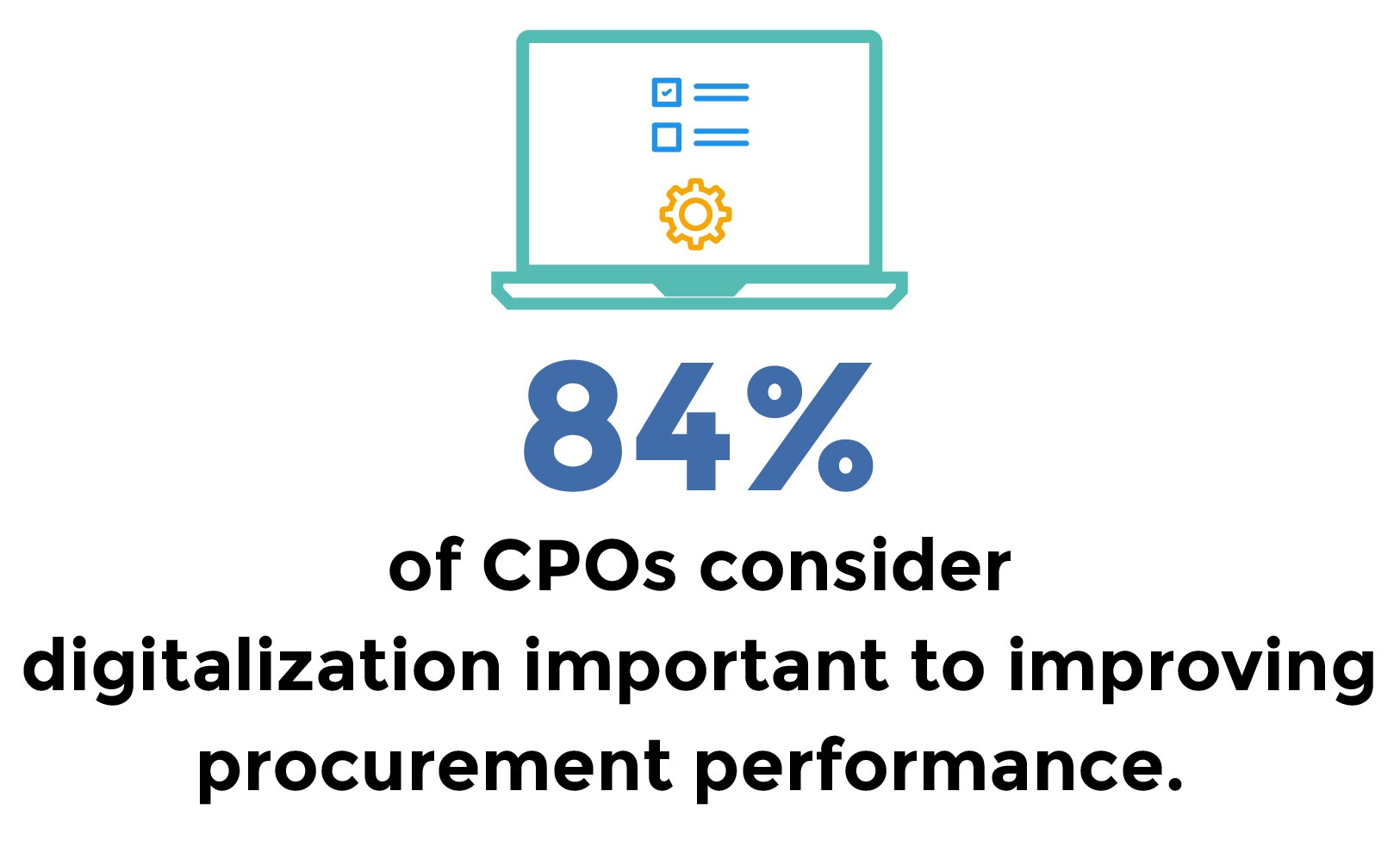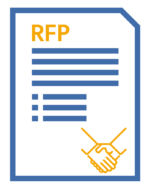Navigating a critical procurement project for your business is stressful. Especially when it involves a complex or technical market you may be unfamiliar with. In situations like this, your best option may be to hire an RFP consultant. From RFP creation and administration to evaluation and selection, an RFP consultant helps to manage the process. Consequently, their expertise often ensures a faster process and more successful outcome.
This post will explore what an RFP consultant is and why you might need to hire one. It will also offer guidance for what you can expect when you hire an RFP consultant and four tips for getting the most out of the engagement.
- What is an RFP consultant?
- Why you might need to hire a strategic sourcing consultant
- What to expect from your procurement consultant
- How to hire the right procurement consultant
- 4 tips for an effective and successful consultant engagement
What is an RFP consultant?
An RFP consultant is an expert at managing effective RFP projects. They work with your procurement team to guide the process from beginning to end. Likewise, strategic sourcing consultants or procurement consultants may perform the same service.
From writing and formatting the RFP to scoring and evaluating vendors, the consultant is with you every step of the way. They leverage their expertise to create a clear and complete RFP. In addition, they help preselect the best vendors to invite to participate in the RFP. Then, they manage incoming vendor questions and proposals to keep your inbox clear of clutter. Finally, the consultant evaluates the results and provides a recommendation.
Why hire a strategic sourcing consultant?
It’s likely that your plate is already full with the day-to-day procurement and strategic sourcing needs of your business. So, when a new procurement project outside of the norm arises, you may find yourself feeling a little overwhelmed. Certainly the RFP process can be fraught with risk if you don’t understand the market terminology, intricacies and players involved.
Beyond adding to your workload, these specialty projects have wide-reaching consequences. As a procurement professional, you know better than anyone the risk and expense of selecting the wrong vendor. For example, when you need to find a new employee benefits administration portal, the outcome of that RFP will impact every employee in the business. Unfortunately, an unsuccessful selection can damage your reputation.
Additionally, without years of industry or market insight, finding the right vendors and evaluating proposals can take months. It quickly becomes a costly process. Generally, an expert RFP consultant can deliver a successful result more efficiently and without draining internal resources. Often RFP consultants are hired for one-time or complex procurement projects like:
- Human resources solutions
- External legal counsel
- Technology solutions and IT sourcing
- Security solutions
- Marketing and media services
Types of RFP consultants (and where to find them)
There are several types of RFP consultants. Naturally, each option has benefits and challenges. Considering all of your options ensures you make the best choice for your circumstances and unique project needs.
Strategic sourcing companies
No matter what type of procurement project you need to undertake, there’s a company of consultants waiting to help. Some consulting firms focus more generally on strategic sourcing and will help with a specific project while coaching your team. Others have expertise in a specific industry like construction, marketing, legal or insurance.
RFP consulting firms leverage the experience of their partners and staff to offer a wide range of perspectives and specialities. In addition, they have well established relationships with potential vendors. Furthermore, strategic sourcing companies have largely embraced digital transformation in procurement. Prioritizing technology aligns with the vision of many chief procurement officers (CPOs). In fact, according to a Deloitte CPO survey, 84 percent of respondents consider digitalization important to improving procurement performance.

As the client, you will benefit from their collective experience, efficient established processes and technology resources. One of the best ways to find a firm is to network with other procurement professionals and ask for recommendations.
Independent procurement consultant or freelancer
Typically the most affordable option is to find an independent procurement consultant or freelancer. In most cases, the consultant has a background working in a specific industry and uses their inside experience to write RFPs that are tailored to their client’s needs. One of the benefits of working with them is the focus they bring to your procurement project. Expect them to be a collaborative, service-oriented partner. These independent RFP consultants and freelancers can be found on LinkedIn, Upwork and in industry publications.
Large firms with procurement consulting services
You may already have a connection to RFP consulting services through your existing relationships. For instance, Lockton is a large insurance brokerage firm that also offers consulting services. So, when their clients need new employee benefits, risk management or retirement services they can engage with an RFP consultant to find the perfect solution.
See how Lockton uses RFP360 to digitally create, issue and evaluate RFPs.
Because of their deep expertise in this specialty area, large firms can shorten the procurement cycle. They do this by prioritizing your needs, offering a short list of vendors based on best matches and evaluating proposals based on your priorities. Like smaller RFP consultant firms, they use RFP technology to make their process efficient and cost-effective. With their help, you avoid sifting through dozens of responses from vendors who aren’t a fit and hone in on the best solutions faster. To get started, simply ask your existing providers if they provide procurement consulting services.
What to expect from your procurement consultant
So, what do you get when you hire an RFP consultant? The consultant will start by exploring your needs and defining your project scope. Then, they will create the RFP with this feedback in mind. The RFP consultant will establish scoring criteria and create a list of recommended vendors to include in your search. They will issue the RFP and field incoming vendor questions and proposals. Finally, they score and evaluate the proposals to establish a short list or final recommendation.
RFP consultant process and services:
Throughout the entire RFP issuing process, the consultant should provide guidance. Not only will they manage the RFP, they should also act as a procurement project management consultant.
- RFP project plan and timeline
- Define goals and establish scope
- Collaborative requirements discovery with stakeholders
- Industry insights and recommendations
- RFP framework and content
- Scoring and evaluation criteria based on your priorities
- List of recommended or pre-selected vendors
- Collection and review of proposal responses
- Vendor evaluation and final selection recommendation
How to hire the right RFP consultant
Procurement projects last on average anywhere from three to eight months, so you’ll want to find someone you enjoy working with. Your consultant should be a culture fit with your organization to make the process easier. More importantly, you need to find a consultant that understands your needs as well as the vendor landscape.
Informal Q&A — What to ask a potential strategic sourcing consultant
Typically, you can find a good fit with a few short phone calls and these questions to guide your conversation.
- What is your experience in the industry?
- Can you provide references for procurement projects similar to ours?
- How do you find and select vendors to be included in RFPs?
- Do you have any vendor partnerships or incentives that should be disclosed?
- What services do you provide throughout the process?
- How will you involve our team and business in the selection process?
- What technology do you use to manage your RFPs and communicate with clients?
- Do you use weighted scoring to evaluate vendors?
- How will you manage and secure our data?
These questions should give you a good frame of reference for what it will be like to work with this consultant. They should be able to relate their process and expertise to you clearly. However, if short conversations with a handful of consultants don’t surface a good candidate you may want to consider issuing an RFP.
Formal RFP for an RFP consultant
I know, the irony is almost too much to handle. Certainly, the idea of issuing an RFP for an RFP consultant sounds absurd, but it can be helpful. A short RFP for a strategic sourcing or procurement consultant can help justify your choice to the executive stakeholders. And, for entities like government agencies, an RFP process may be required.

RFP consultant RFP example
In 2015, the City of Philadelphia issued an RFP seeking a procurement consultant for their Community Behavioral Health department. They needed help managing an increasing number of procurement projects. The in-depth RFP detailed the background and expectations.
Check it out for some inspiration:
RFP for procurement consultant services from City of Philadelphia
4 tips for an effective and successful consultant engagement
1. Engage strategically
By definition, the RFP consultant is there to work for and engage with you. If they work in isolation, they won’t be as effective. It’s the classic catch 22 of the consultant relationship. They need your time to understand your goals and move the project forward. However, you hired them because you don’t have enough time to dedicate to the project to start with. So, you have to find a balance.
Establish your expectations at the beginning of the engagement. Define what stages you will be actively involved in. Likewise, identify areas where you will trust the consultant to make the best choices. Generally, I recommend planning to actively engage in requirements discovery, scope definition, scoring criteria and final vendor evaluation stages.
2. Leverage technology to stay up to date
Even after you’ve outlined your involvement, stay informed. Certainly, you should always have a good idea of the project’s progress. Use technology to stay up to date with developments. For instance, ask if you can be invited to their RFP software solution to view real-time insights. Alternatively, invite them into your company’s communication tool. Add the procurement consultant as a guest contributor in an instant messaging tool like Slack or project management tool like Teamwork. This will centralize your communications with little to no additional cost.
3. Provide feedback
Because you’re keeping an eye on the project, you’ll be able to proactively provide feedback. If your consultant is missing the mark, provide more context to get them on track. Remember that even though the RFP consultant is an expert in the industry, every organization is different. And, you’re an expert in your business, so share your insights.
4. Ask questions and retain their knowledge
Part of the value of hiring an RFP expert is learning from them. Be sure to make the most of the knowledge they bring to the table. With this in mind, ask as many questions as you can. Additionally, leverage the documents and output. For example, save the RFP and create a template for other procurement projects. Explore their RFP technology, strategies for efficiency and best practices. Review their discovery questions and adapt them as needed to facilitate future internal collaboration.
The value of an RFP consultant
Businesses and procurement teams that practice strategic sourcing are more successful. As a result, the 2019 Deloitte CPO survey found that 69 percent of CPOs plan to undertake strategic sourcing and category management training in the next year. In the meantime, hiring a strategic sourcing consultant can result in reduced risk, improved efficiency and better spend management. So, for your next big project an RFP consultant may be a worthy investment.
